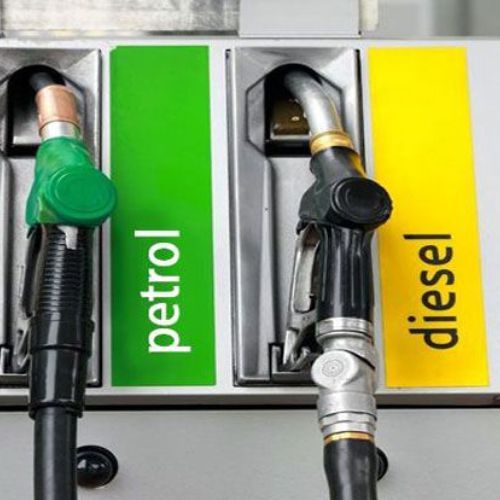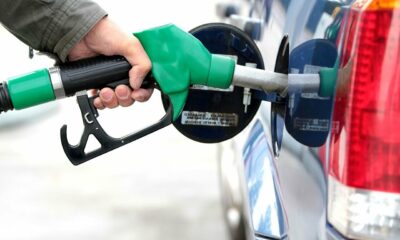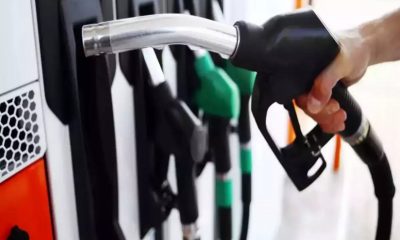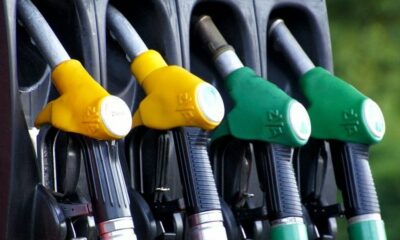News
Fuel Prices Set to Rise in July 2025 as Middle East Conflict Drives Oil Costs Higher

South African motorists are bracing for another fuel price hike in July, as surging oil prices driven by escalating conflict in the Middle East continue to pressure local fuel cost recoveries.
According to the latest Central Energy Fund (CEF) data, fuel under-recoveries have deepened significantly compared to mid-June estimates, suggesting that a price hike at the pumps next month is all but certain.
Expected Fuel Price Changes for July 2025
The data from the third week of June reveals the following projected increases:
-
Petrol 93: +35 cents per litre
-
Petrol 95: +38 cents per litre
-
Diesel 0.05% (wholesale): +56 cents per litre
-
Diesel 0.005% (wholesale): +58 cents per litre
-
Illuminating paraffin: +45 cents per litre
These projections show a notable jump from mid-month estimates, driven largely by the global oil price rally in the wake of the Israel-Iran war escalation.
Middle East Tensions Send Oil Prices Soaring
Oil prices have surged almost 20% in June alone, climbing from around $64 a barrel in May to $77. The trigger? A dramatic intensification of military action between Israel and Iran, with Iran retaliating following strikes on its nuclear facilities. Fears of wider conflict, including potential US involvement are rattling global energy markets.
But the biggest concern lies in logistics. The Strait of Hormuz, a critical shipping route through which 15% of the world’s oil and 20% of LNG passes, now faces the risk of disruption. Already, charter rates for oil tankers have doubled, a direct contributor to higher oil import costs globally and locally.
The Rand Holds the Line, Barely
If there’s one silver lining, it’s the South African rand, which has mostly held steady around R18.00 to the dollar. This relative strength has undercut the projected fuel hikes by around 15 cents per litre, according to the Bureau for Economic Research (BER).
However, economists warn that the rand’s resilience is mostly due to weakness in the dollar, rather than South Africa’s internal fundamentals which remain fragile.
In fact, the rand has weakened against other global currencies such as the euro and the pound over the same period, highlighting the country’s persistent structural weaknesses, including:
-
Low GDP growth (sub-1% projected for 2025)
-
High unemployment
-
Slow reform progress, especially in logistics and infrastructure
-
Municipal collapse, affecting local service delivery and investment appeal
Impact on Consumers and Businesses
The looming July price increases will deal another blow to households and transport-reliant industries, particularly small businesses, agriculture, and logistics operators.
Higher diesel costs, in particular, will have a knock-on effect on food prices and public transport fares, while the paraffin increase will hurt low-income households that rely on it for cooking and heating.
Looking Ahead: More Volatility Likely
With geopolitical risk still high and tensions in the Middle East far from resolved, analysts warn that oil markets will remain volatile. Any disruption to shipping or further military escalation could send prices higher — or force a global supply shock.
Meanwhile, local structural issues remain unresolved, despite some progress from the Presidency’s Operation Vulindlela on energy reform. Still, logistics bottlenecks, infrastructure neglect, and criminal activity in critical sectors are undermining broader recovery efforts.
South Africans should prepare for petrol and diesel price hikes in July 2025, as global oil markets respond to escalating Middle East conflict and shipping risks. While the rand has softened the blow slightly, the deeper economic picture remains strained.
With fuel prices, food inflation, and transport costs set to rise, this latest hike underscores just how vulnerable the country remains to external shocks and how urgently domestic economic reforms are still needed.
{Source: BusinessTech}
Follow Joburg ETC on Facebook, Twitter , TikTok and Instagram
For more News in Johannesburg, visit joburgetc.com



























